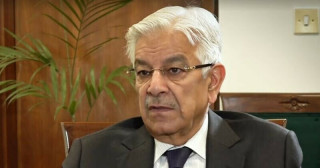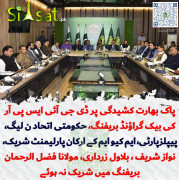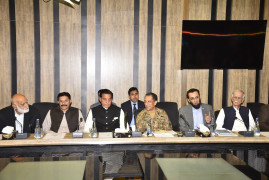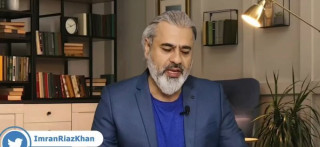hans
Banned
Saudi Arabia Legal History:
Saudi Arabia was never directly colonised although parts of the present-day state had come under nominal or intermittent Ottoman control since the 16th century. Turkish garrisons were at times stationed in Mecca, Medina, Jeddah and other centres, but the Ottomans only exercised limited powers and local rulers had a high degree of autonomy in internal affairs. The Ottomans final efforts at occupying eastern Arabia in 1871 to forestall the growing British influence at their borders in the Arabian Gulf eventually failed. The basis of the Wahhabi state of Saudi Arabia was established in 1902 when Abd al-Aziz al-Saud and his followers gained control of Riyadh, signalling the beginning of the third period of Saudi-Wahhabi dominance in the region. Abd al-Aziz consolidated his territorial gains over the next decade, expanding out of the surroundings of Riyadh and the eastern part of the region into the areas where the Ottomans were expelled. The Kingdom of Saudi Arabia was declared on 22nd September 1933 over those lands that had come under Abd al-Azizs control by conquest and by forging numerous alliances.
Following the 1979 seizure of the Grand Mosque in Mecca, the decline in oil prices in the 1980s, and the effects of the second Gulf War, tentative efforts have been made to establish a more representative form of governance. A Majlis al-Shura (Consultative Council) was introduced by King Fahd in 1993. The Majlis had 61 appointed members; in 1996 this was increased to 90 members. Although the Majlis has no legislative powers, it may examine government policies and propose laws or amendments to existing laws. Decisions or suggestions from the Majlis are first sent to the Council of Ministers for review, and then to the King for his approval.
The main sources of Saudi law are Hanbali fiqh as set out in a number of specified classical scholarly treatises by authoritative jurists, other Hanbali sources, other schools of law, state regulations and royal decrees (where these are relevant), and custom and practice. Royal decrees have been used to direct courts to base judgements on several authoritative classical treatises by Hanbali jurists (e.g., al-Mughni of ibn Qudamah). A resolution of the Supreme Judicial Council passed in 1928 also directed the courts to rely on particular Hanbali sources in civil matters, ranked as follows: Sharh Mutaha al-Iradat of al-Bahuti, Kashshaf al-Kina an Matn al-Ikna of al-Bahuti, commentaries of al-Zad, commentaries of al-Dalil, and if no suitable provision is found, then secondary sources in Hanbali legal manuals, and lastly, reference to authorities of other madhahib. If no answer is found in officially sanctioned sources, resort may be had to ijtihad.
Traditional areas of law continue to be governed by sharia law while certain spheres of law relating to corporate, tax, oil and gas, immigration law, etc. have been regulated by royal decrees and codes.
Schools of Fiqh: The Hanbali school is the official madhhab in Saudi Arabia. There is also a Shia minority adhering to the Jafari school.
Constitutional Status of Islam(ic Law): Saudi Arabia has no formal constitution. The functions of a constitution are served by the Basic Law articulating the government's rights and responsibilities issued by King Fahd in March 1992.
Article 1 of the Basic Law declares Islam the official state religion and the Quran and sunnah the Constitution. The Basic Law also provides that "[t]he state protects the rights of the people in line with the Islamic sharia," affirms the independence of the judiciary and states that administration of justice is based on "sharia rules according to the teachings of the holy Quran, the sunnah, and the regulations set by the ruler provided that they do not contradict the holy Qur�an and sunnah".
Article 9 of the Basic Law states that "the family is the kernel of Saudi society, and its members shall be brought up on the basis of the Islamic faith".
Article 26 provides that the state protects human rights "in accordance with the Islamic Shari'a".
Court System: Sharia Courts have general and residual jurisdiction, i.e., jurisdiction over any case or matter the jurisdiction over which has not been expressly assigned to another tribunal.
There are four levels of sharia courts: Minor Courts, General Courts, Cassation Court, and the Supreme Judicial Council.
Civil claims may also go to the Amarah in which case the Amir attempts to guide the parties in a dispute to a compromise; the matter is ultimately referred to the courts if a settlement is not reached. There are also a number of specialised tribunals for settling disputes in specific areas, such as commercial or labour law; these specialised tribunals are formed under various ministries outside of the Ministry of Justice. The highest appellate tribunal in all matters, the Board of Grievances, is also independent of the Ministry of Justice, and since its reorganisation in 1982 has been made directly responsible to the King.
Notable Features: Standard Hanbali fiqh is applied to personal status cases.
Notable Cases: Non refered.
Law/Case Reporting System: Law reporting is through the Official Gazette.
International Conventions (with Relevant Reservations): Saudi Arabia acceded to the CRC in 1996 with a general reservation to "all such articles as are in conflict with the provisions of Islamic law."
Saudi Arabia was never directly colonised although parts of the present-day state had come under nominal or intermittent Ottoman control since the 16th century. Turkish garrisons were at times stationed in Mecca, Medina, Jeddah and other centres, but the Ottomans only exercised limited powers and local rulers had a high degree of autonomy in internal affairs. The Ottomans final efforts at occupying eastern Arabia in 1871 to forestall the growing British influence at their borders in the Arabian Gulf eventually failed. The basis of the Wahhabi state of Saudi Arabia was established in 1902 when Abd al-Aziz al-Saud and his followers gained control of Riyadh, signalling the beginning of the third period of Saudi-Wahhabi dominance in the region. Abd al-Aziz consolidated his territorial gains over the next decade, expanding out of the surroundings of Riyadh and the eastern part of the region into the areas where the Ottomans were expelled. The Kingdom of Saudi Arabia was declared on 22nd September 1933 over those lands that had come under Abd al-Azizs control by conquest and by forging numerous alliances.
Following the 1979 seizure of the Grand Mosque in Mecca, the decline in oil prices in the 1980s, and the effects of the second Gulf War, tentative efforts have been made to establish a more representative form of governance. A Majlis al-Shura (Consultative Council) was introduced by King Fahd in 1993. The Majlis had 61 appointed members; in 1996 this was increased to 90 members. Although the Majlis has no legislative powers, it may examine government policies and propose laws or amendments to existing laws. Decisions or suggestions from the Majlis are first sent to the Council of Ministers for review, and then to the King for his approval.
The main sources of Saudi law are Hanbali fiqh as set out in a number of specified classical scholarly treatises by authoritative jurists, other Hanbali sources, other schools of law, state regulations and royal decrees (where these are relevant), and custom and practice. Royal decrees have been used to direct courts to base judgements on several authoritative classical treatises by Hanbali jurists (e.g., al-Mughni of ibn Qudamah). A resolution of the Supreme Judicial Council passed in 1928 also directed the courts to rely on particular Hanbali sources in civil matters, ranked as follows: Sharh Mutaha al-Iradat of al-Bahuti, Kashshaf al-Kina an Matn al-Ikna of al-Bahuti, commentaries of al-Zad, commentaries of al-Dalil, and if no suitable provision is found, then secondary sources in Hanbali legal manuals, and lastly, reference to authorities of other madhahib. If no answer is found in officially sanctioned sources, resort may be had to ijtihad.
Traditional areas of law continue to be governed by sharia law while certain spheres of law relating to corporate, tax, oil and gas, immigration law, etc. have been regulated by royal decrees and codes.
Schools of Fiqh: The Hanbali school is the official madhhab in Saudi Arabia. There is also a Shia minority adhering to the Jafari school.
Constitutional Status of Islam(ic Law): Saudi Arabia has no formal constitution. The functions of a constitution are served by the Basic Law articulating the government's rights and responsibilities issued by King Fahd in March 1992.
Article 1 of the Basic Law declares Islam the official state religion and the Quran and sunnah the Constitution. The Basic Law also provides that "[t]he state protects the rights of the people in line with the Islamic sharia," affirms the independence of the judiciary and states that administration of justice is based on "sharia rules according to the teachings of the holy Quran, the sunnah, and the regulations set by the ruler provided that they do not contradict the holy Qur�an and sunnah".
Article 9 of the Basic Law states that "the family is the kernel of Saudi society, and its members shall be brought up on the basis of the Islamic faith".
Article 26 provides that the state protects human rights "in accordance with the Islamic Shari'a".
Court System: Sharia Courts have general and residual jurisdiction, i.e., jurisdiction over any case or matter the jurisdiction over which has not been expressly assigned to another tribunal.
There are four levels of sharia courts: Minor Courts, General Courts, Cassation Court, and the Supreme Judicial Council.
Civil claims may also go to the Amarah in which case the Amir attempts to guide the parties in a dispute to a compromise; the matter is ultimately referred to the courts if a settlement is not reached. There are also a number of specialised tribunals for settling disputes in specific areas, such as commercial or labour law; these specialised tribunals are formed under various ministries outside of the Ministry of Justice. The highest appellate tribunal in all matters, the Board of Grievances, is also independent of the Ministry of Justice, and since its reorganisation in 1982 has been made directly responsible to the King.
Notable Features: Standard Hanbali fiqh is applied to personal status cases.
Notable Cases: Non refered.
Law/Case Reporting System: Law reporting is through the Official Gazette.
International Conventions (with Relevant Reservations): Saudi Arabia acceded to the CRC in 1996 with a general reservation to "all such articles as are in conflict with the provisions of Islamic law."






































